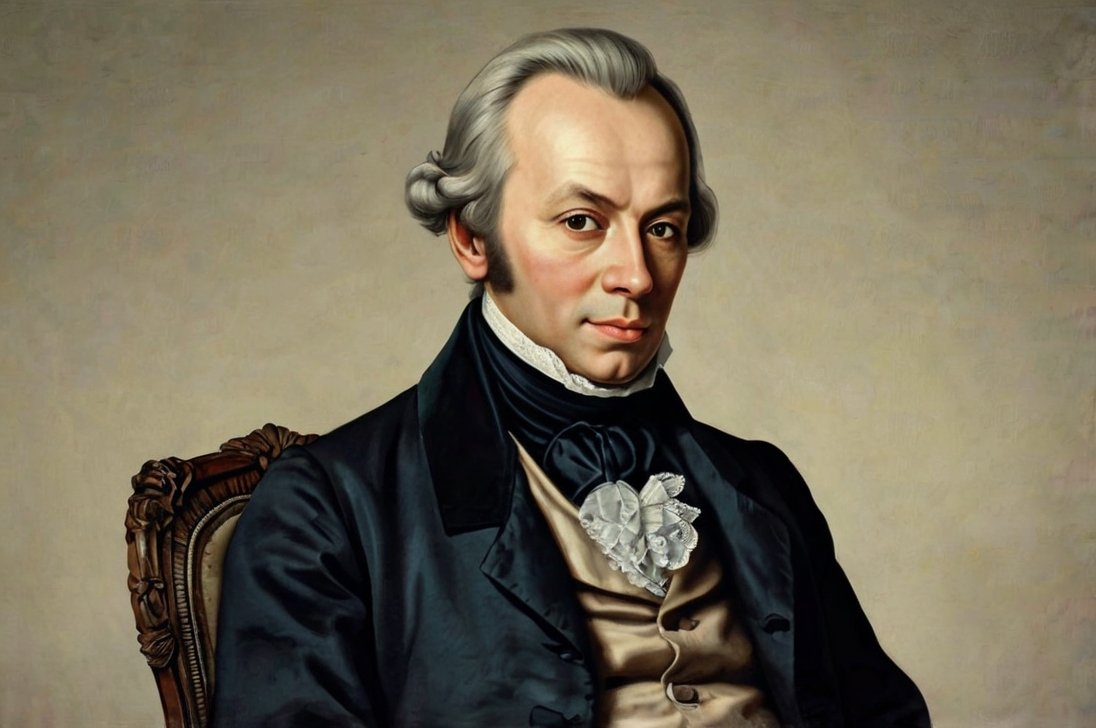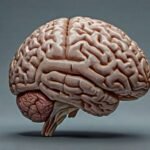
The Enlightenment, a significant intellectual movement of the 18th century, profoundly shaped the course of Western history.
Germany, in particular, was home to several key thinkers whose ideas continue to influence modern philosophy, literature, and culture.
These German Enlightenment thinkers, through their works and philosophies, laid the foundation for much of what we consider modern thought today.
In this article, we will explore the lives and contributions of some of the most influential German Enlightenment thinkers.
6 Famous German Enlightenment Thinkers
Immanuel Kant
Immanuel Kant (1724-1804) is perhaps the most significant figure in German philosophy.
His work bridged the gap between the rationalism of the Enlightenment and the romanticism that followed.
Kant’s most famous contribution is his “Critique of Pure Reason” (1781), where he explored the limitations of human knowledge and the conditions for the possibility of experience.
Kant’s philosophy is centered on the concept of “transcendental idealism,” which argues that our understanding of the world is shaped by the way our minds structure experience.
He is also known for his moral philosophy, particularly the “categorical imperative,” which asserts that one should act according to principles that could be universally applied.
Kant’s ideas have had a profound impact on modern philosophy, particularly in areas like ethics, epistemology, and metaphysics.
His influence extends beyond philosophy, affecting fields such as political theory and psychology.
- Read also: The Intellectual Giants: The American Enlightenment Thinkers
- Read also: Intellectual Brilliance: 7 Scottish Enlightenment Thinkers
Johann Wolfgang von Goethe

Johann Wolfgang von Goethe (1749-1832) was a polymath whose contributions spanned literature, science, and philosophy.
Although best known for his literary works, such as “Faust” and “The Sorrows of Young Werther,” Goethe was deeply engaged with the intellectual currents of his time.
Goethe’s concept of “Weltliteratur” (world literature) reflects his belief in the interconnectedness of cultures and the importance of understanding literary works in a global context.
He also made significant contributions to the study of color theory and was an early critic of Newton’s work on optics.
Goethe’s influence on German literature is immense, but his impact on modern thought is equally significant.
His ideas on individuality, the human condition, and the relationship between nature and art continue to resonate in contemporary discussions on philosophy and culture.
Gotthold Ephraim Lessing
Gotthold Ephraim Lessing (1729-1781) was a playwright, philosopher, and critic who played a pivotal role in the German Enlightenment.
Lessing is often credited with helping to establish modern German literature.
His plays, such as “Nathan the Wise,” promoted religious tolerance and the idea of a universal humanity.
Lessing was also a significant figure in the development of aesthetics.
His work “Laocoön: An Essay on the Limits of Painting and Poetry” (1766) explored the differences between visual and literary arts, arguing that each medium has its own strengths and limitations.
Lessing’s advocacy for freedom of thought and expression, as well as his commitment to religious tolerance, has had a lasting impact on modern liberal thought.
His work continues to be studied for its contributions to literary theory and philosophy.
Friedrich Schiller

Friedrich Schiller (1759-1805) was a playwright, poet, and philosopher whose work epitomized the ideals of the German Enlightenment.
Schiller’s plays, such as “The Robbers” and “William Tell,” are celebrated for their exploration of freedom, justice, and the human condition.
Schiller was deeply influenced by Kantian philosophy, and his essays on aesthetics, particularly “On the Aesthetic Education of Man” (1795), argued that art plays a crucial role in moral development and the cultivation of human freedom.
Schiller’s ideas have had a lasting influence on both literature and philosophy.
His emphasis on the moral and educational value of art has inspired generations of writers, artists, and thinkers.
Georg Wilhelm Friedrich Hegel
Georg Wilhelm Friedrich Hegel (1770-1831) was a philosopher whose work marks the culmination of the German Enlightenment.
Hegel’s philosophy is known for its complexity, particularly his concept of dialectics, where the development of ideas occurs through a process of thesis, antithesis, and synthesis.
Hegel’s “Phenomenology of Spirit” (1807) and “Science of Logic” (1812-1813) are central texts in Western philosophy.
His ideas on history, reality, and the state have influenced a wide range of fields, from political theory to theology.
Hegel’s philosophy laid the groundwork for later movements such as existentialism, Marxism, and critical theory.
His dialectical method continues to be a powerful tool for understanding the development of ideas and historical processes.
Johann Gottfried Herder

Johann Gottfried Herder (1744-1803) was a philosopher, theologian, and literary critic who made significant contributions to the German Enlightenment.
Herder is best known for his ideas on cultural relativism and the importance of language in shaping thought.
Herder argued that each culture has its own unique value and that understanding a culture requires understanding its language, literature, and traditions.
His work “Ideas for the Philosophy of History of Humanity” (1784-1791) laid the foundation for modern anthropology and the study of culture.
Herder’s ideas have had a lasting impact on the humanities, particularly in areas like cultural studies, linguistics, and philosophy of history.
His emphasis on the importance of culture and language continues to influence contemporary debates on identity and multiculturalism.
Impact of Their Ideas on Modern Thought
The ideas of these German Enlightenment thinkers have had a profound and lasting impact on modern thought.
Kant’s work continues to influence contemporary philosophy, particularly in areas like ethics and epistemology.
Goethe’s ideas on literature and culture have shaped modern literary theory, while Lessing’s advocacy for religious tolerance remains relevant in discussions on human rights and freedom of expression.
Schiller’s exploration of the relationship between art and morality continues to inspire discussions on the role of culture in society.
Hegel’s dialectical method has influenced a wide range of fields, from political theory to existential philosophy.
Herder’s ideas on cultural relativism and the importance of language have had a lasting impact on the humanities and social sciences.
Together, these thinkers laid the intellectual foundations for many of the ideas that continue to shape modern philosophy, literature, and social theory.
- Read also: Breaking Barriers: 9 Women Philosophers in the Enlightenment Era
- Read also: Unveiling the Rich Tapestry: Germany in the Medieval Era
Final Thoughts
The German Enlightenment was a period of remarkable intellectual achievement, and the thinkers we’ve discussed played a crucial role in shaping the course of modern thought.
Their ideas continue to resonate today, influencing a wide range of fields from philosophy and literature to political theory and cultural studies.
By exploring the works of Kant, Goethe, Lessing, Schiller, Hegel, and Herder, we gain a deeper understanding of the intellectual foundations of modern Western thought.
These thinkers remind us of the importance of reason, culture, and the pursuit of knowledge in shaping a more just and enlightened society.



